How to be an Organic Gardener
Including 30 Practical Suggestions for Implementing Organic Gardening Principles
What exactly is organic gardening? How is it different from regular gardening? Why does it matter?
Organic gardening is more than just not using pesticides and other chemicals in your garden; it is a way of gardening that makes pesticide and chemical use not needed.

This post will answer the following questions about organic gardening:
What is organic gardening? Organic gardening is growing fruits, vegetables, herbs, and other plants without the use of synthetic chemical fertilizers or pesticides.
How is organic gardening different from regular gardening? Organic gardening focuses on creating a healthy environment for plants to thrive in from the beginning rather than gardening in a reactive way to adverse conditions in the garden.
Why does organic gardening matter? The outcome of organic gardening is food full of good things rather than chemicals and pesticides. Rather than depleting the soil, it leaves the soil better than you found it.
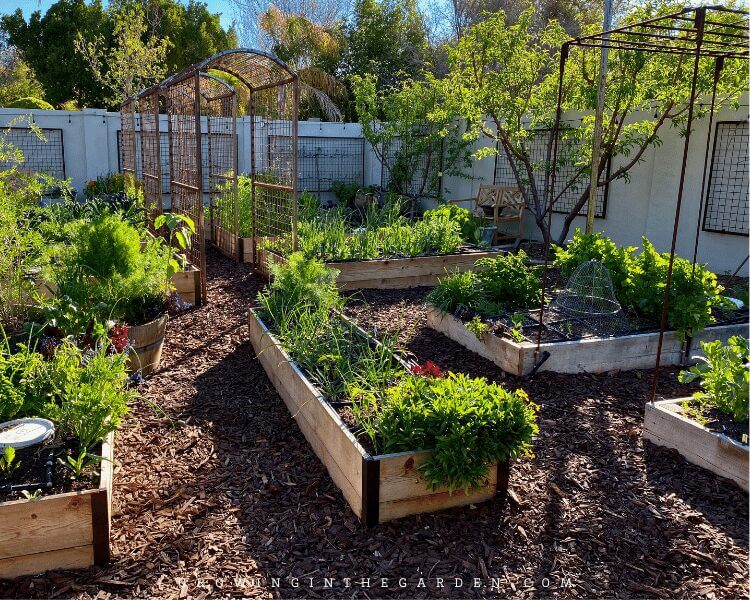
7 Things Organic Gardeners Do Differently
Including 30 Practical Suggestions for Implementing Organic Gardening Principles
These 7 principles (when followed) will make organic gardening not only simple, but successful as well.
The first step is to eliminate the use of pesticides and chemical fertilizers. Once you have done that, implement the organic gardening practices as you can. Over time, continue to incorporate more. As you do, they will work together just as nature intended.
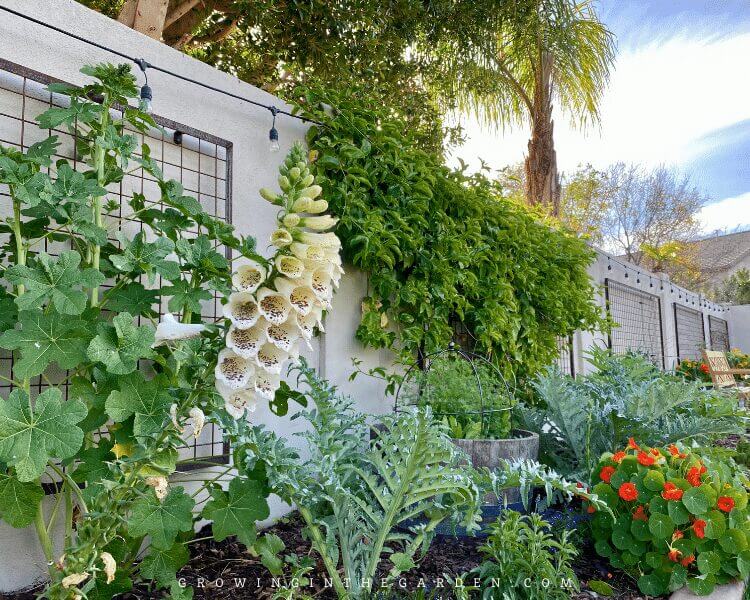
1. How to be an organic gardener: Focus on feeding the soil, not the plant
Synthetic fertilizers offer a quick shot of nutrients to plants. Adding organic matter and organic amendments to the soil contribute to the rich diversity in microorganisms and life teeming below the surface. This rich life in the soil then feeds the plant.
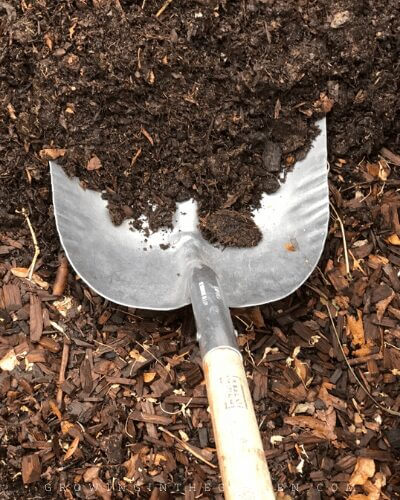
Adding compost is one of the best ways to improve your garden soil.
Ideas for feeding the soil:
- Regularly top beds off with compost.
- After using a soil test, add organic soil amendments such as blood meal, bone meal, and rock phosphorus as needed to replenish the soil.
- Grow cover crops and turn them back under the soil.
- Add vermicomposting bins to your garden beds.
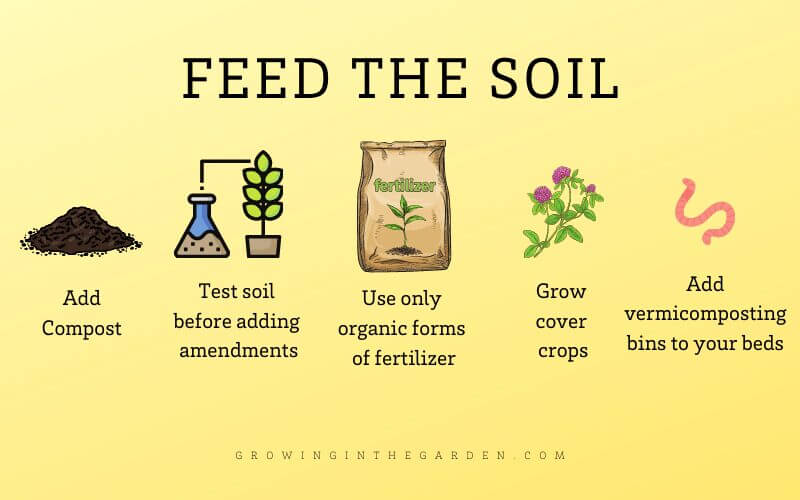
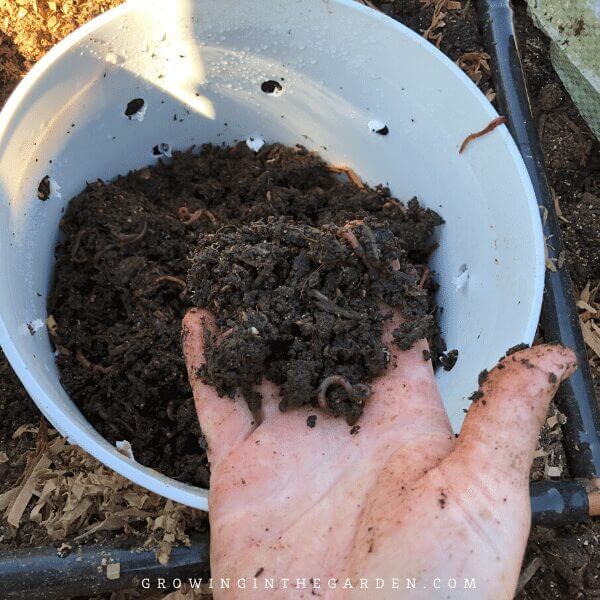

In this article, learn more about using cover crops during summer to improve garden soil.
2. How to be an organic gardener: Avoid diseases rather than treating them
As with most aspects of organic gardening, the goal with diseases in the garden is prevention.
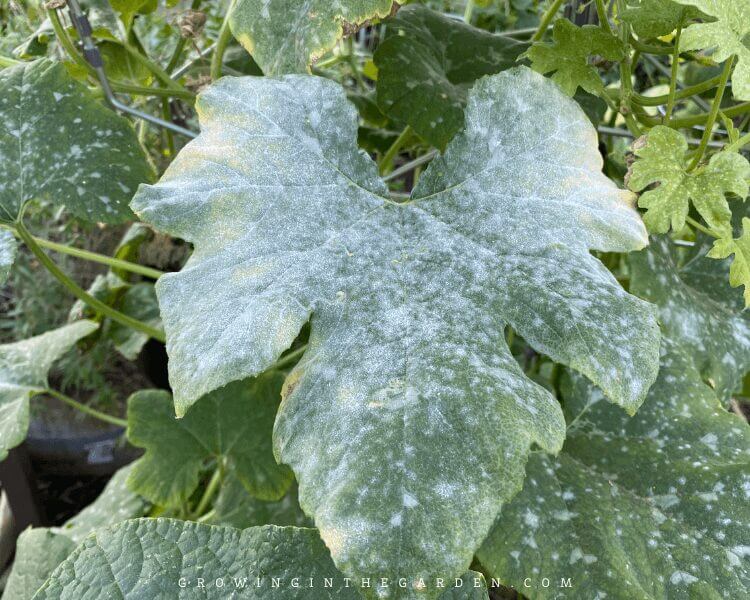

Ideas for disease prevention:
- Choose disease-resistant varieties of crops, especially if you have had disease issues in the past.
- Water in the morning and avoid getting water on the leaves of plants.
- Develop a system for crop rotation for different families of plants; diseases often build up in the soil after repeated plantings.
- Dispose of diseased crops rather than composting them.
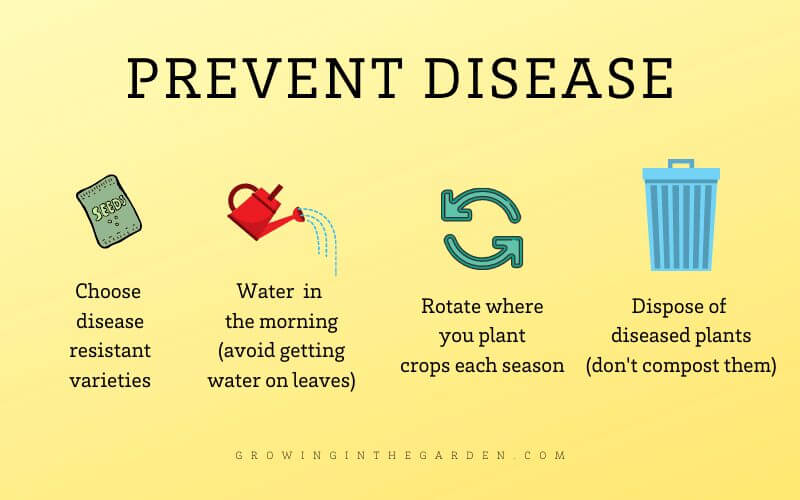
3. How to be an organic gardener: Prevent and pull weeds instead of spraying chemicals on them
Weeds are a common nuisance in the garden, but a few techniques can get them under control.
Ideas for organic weed control:
- Manually pull weeds before they go to seed. This prevents more seed from being sown for weeds.
- Garden in raised beds which naturally have fewer weeds.
- In areas where weeds are an issue, consider growing a cover crop to choke out the weeds.
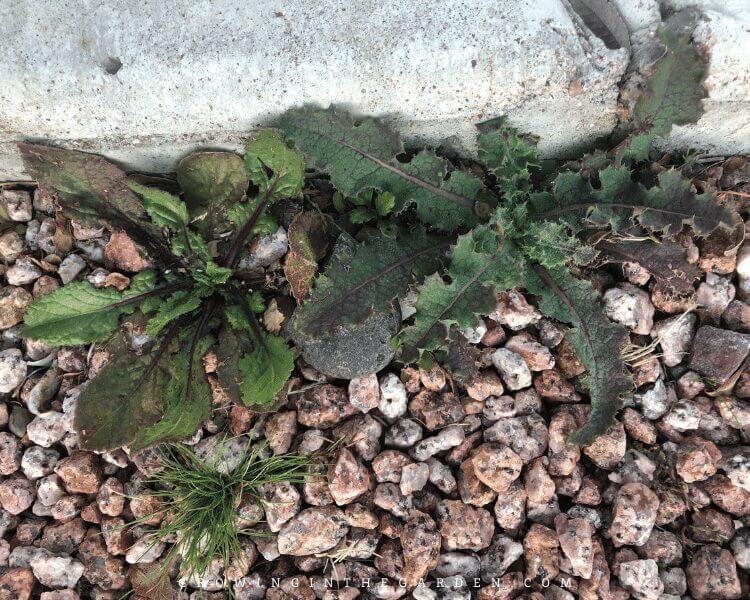
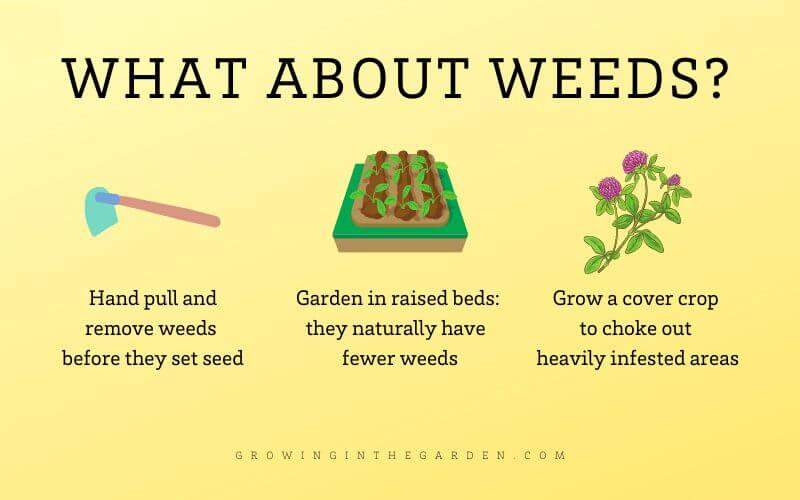
4. How to be an organic gardener: Grow healthy plants that can withstand a little pest damage
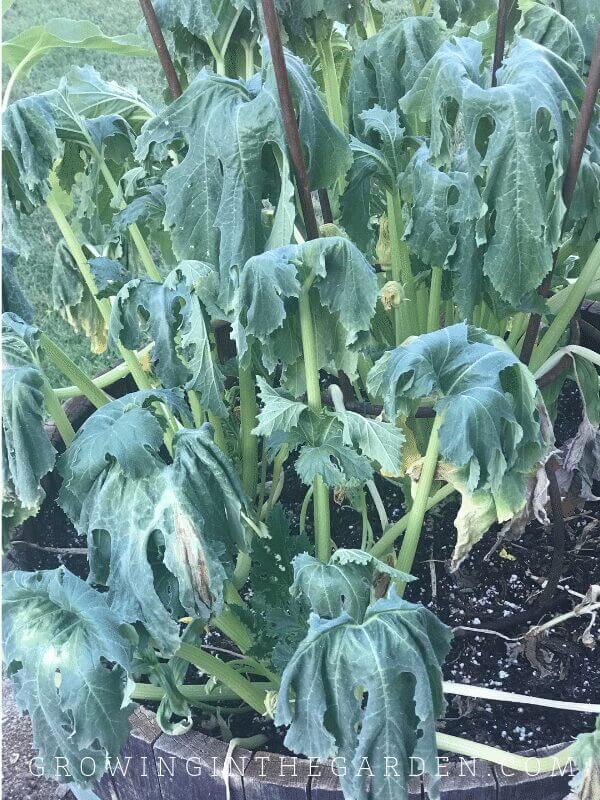
Plants that are not stressed can handle insect infestations without succumbing.
These practices will help plants be healthier:
- Inconsistent watering stresses plants; use a timer or automatic watering system to provide water consistently.
- Rather than shallow watering, focus on watering the entire root zone of plants each time you water. This encourages the roots to grow deep. Deep roots can withstand environmental stresses better.
- Provide adequate nutrition, but do not over-fertilize plants. Excess nitrogen makes plants more attractive to insects and disease.
- Plants have a preferred growing temperature. Growing plants outside of their preferred growing conditions causes stress and plants are more likely to have pest and disease issues.
5. How to be an organic gardener: Manage pests mindfully
Learn to control the urge to reach for a chemical spray every time you see a bug.
Here are a few methods to implement, listed from least invasive to most invasive. Always begin with the least invasive first.
- Learn which bugs are beneficial and which are destructive in your area.
- Do nothing; healthy plants can often withstand some damage.
- Use barrier methods such as floating row cover to prevent infestations.
- Use sticky traps for airborne pests.
- Hand-pick large insects and remove infected leaves.
- Spray off with water.
- Use Bacillus thuringiensis (or Bt) for caterpillars and other leaf-eating insects.
- Pull heavily-infested plants rather than treating them, and dispose of them (do not compost).
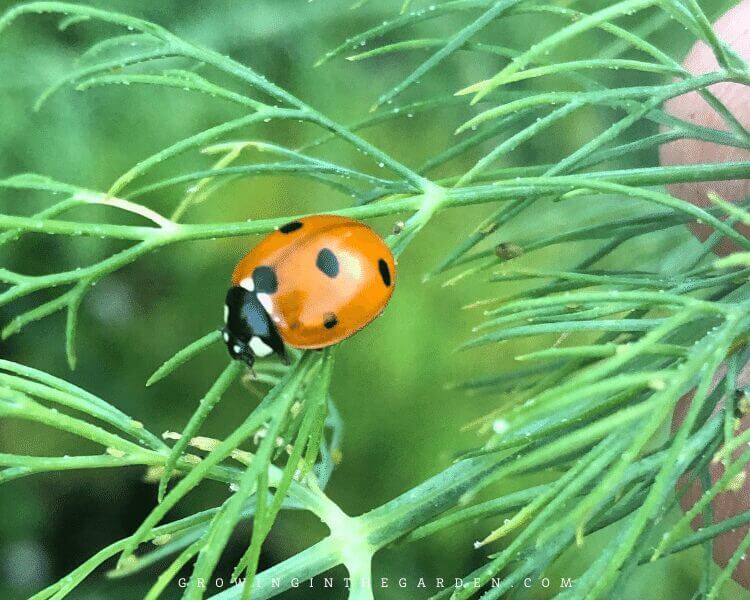
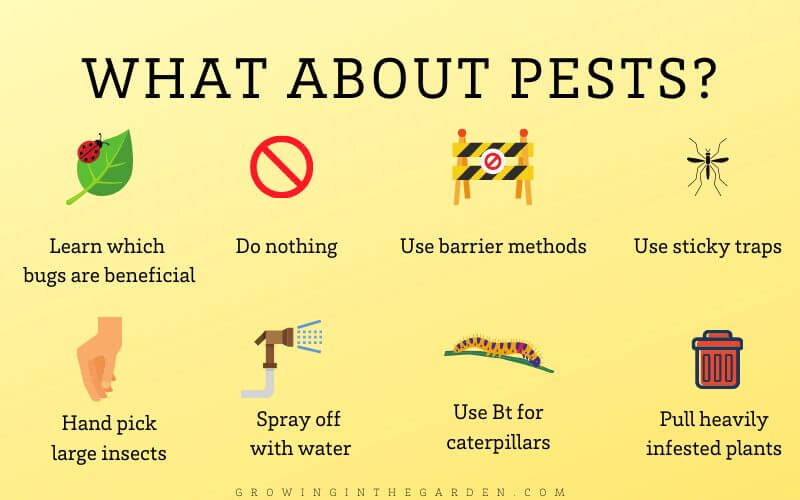
6. How to be an organic gardener: Plant the right plant in the right place and the correct time so it can thrive
Although many gardeners like to stretch the boundaries of what is possible to grow in their region and climate, this can be stressful on plants. Growing plants suited to your garden’s condition that are adapted to your area often grow well without the need for extraordinary measures.
How to implement this principle:
- Select native varieties or those adapted to your area.
- Understand the different microclimates in your garden, and choose locations best-suited for each type of plant.
- Plant at the correct time of year (use a local planting guide for reference).
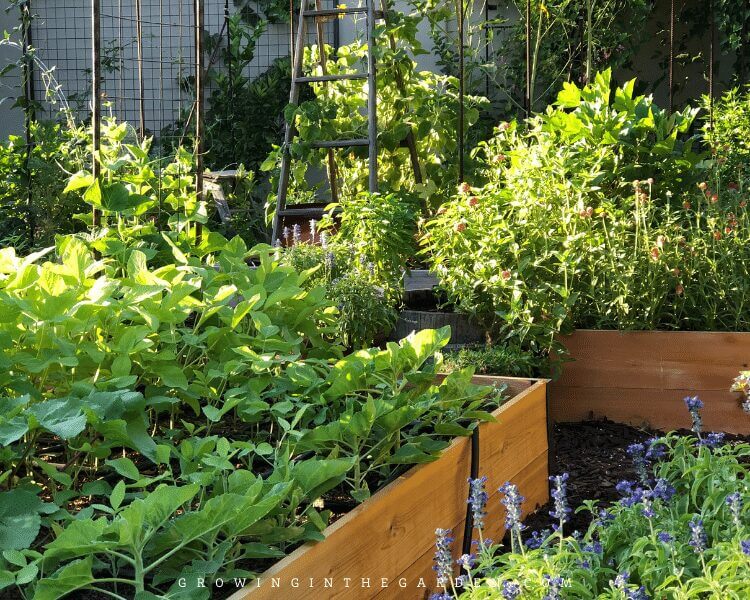
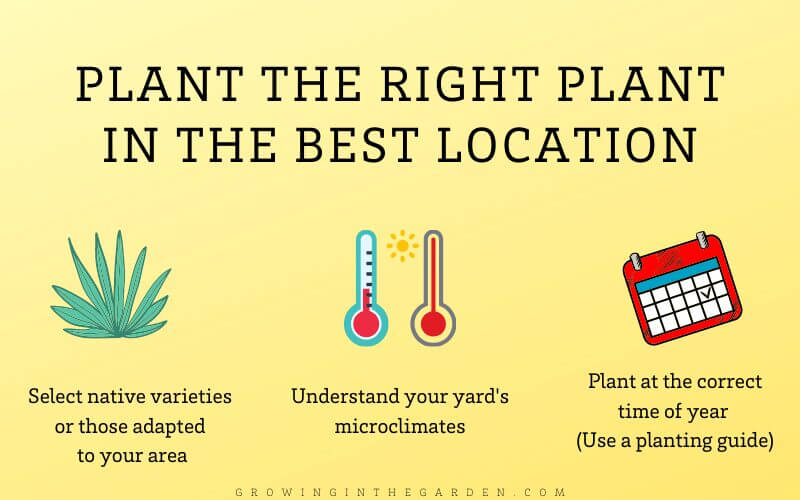
7. How to be an organic gardener: Practice companion planting and polyculture practices to encourage a healthy ecosystem in the garden
When a garden is host to a wide variety of plants (polyculture), it more closely mimics nature and increases the overall health of the garden.
Monocultures (large areas with one type of plant) are inviting to pests and disease; it is easy for the pests to find their host plants.
How to encourage a healthy ecosystem:
- Learn the preferred companions for plants in your garden and plant them nearby.
- Add similar plants to different areas of your garden; don’t clump them all together.
- Interplant several different types of plants with similar growing needs in the same bed or location.
- Add a wide variety of perennial herbs and flowers to your garden.
- Allow herbs to flower and attract beneficial insects and pollinators to your garden.
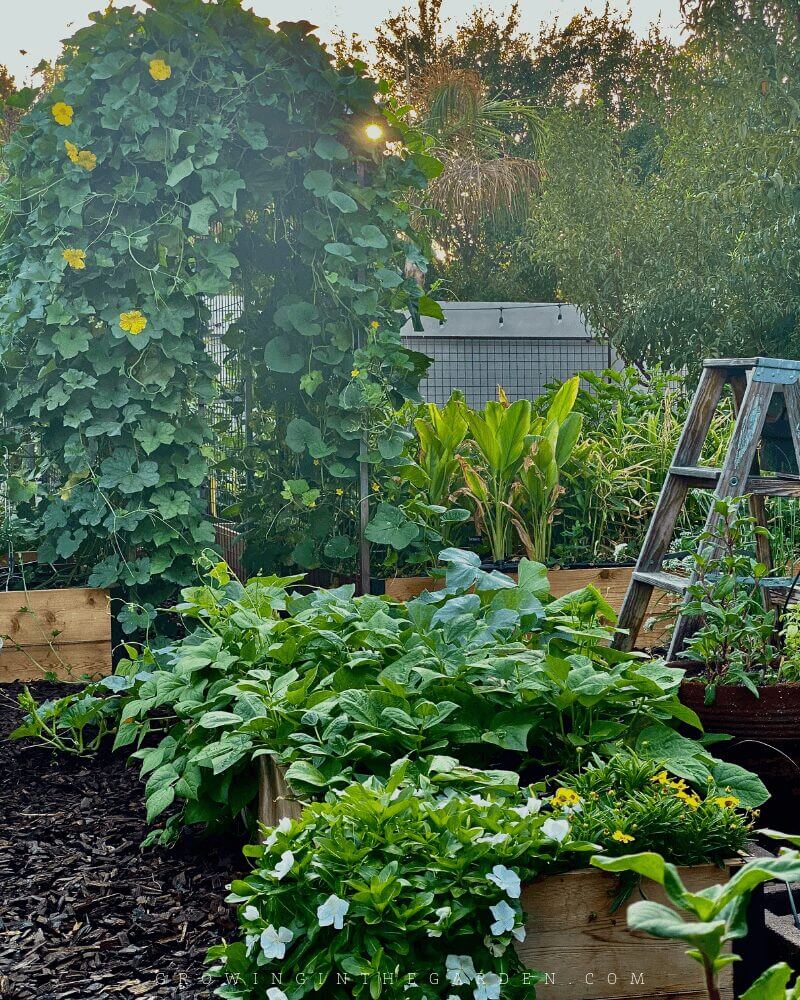
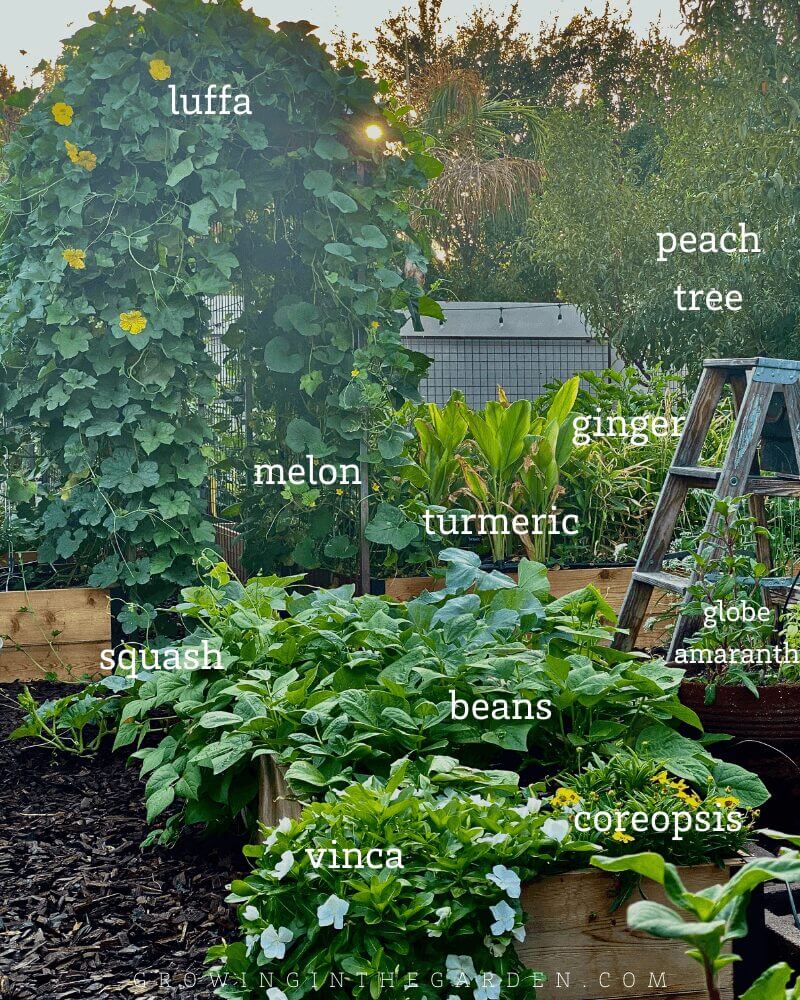
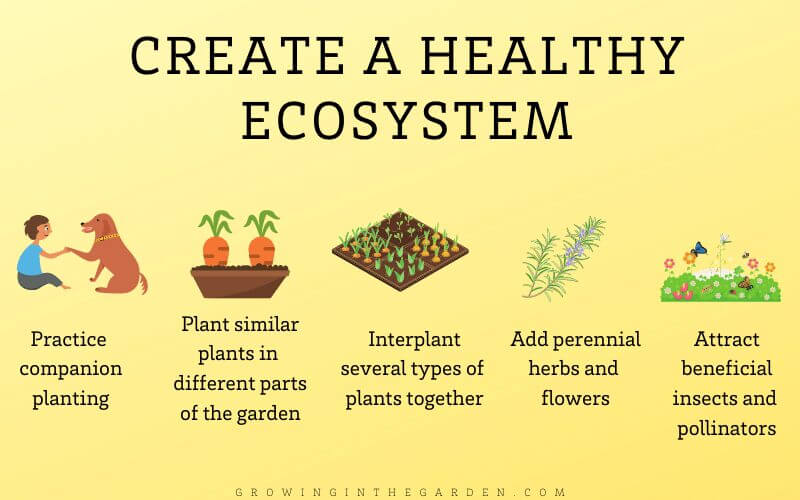
If this post about how to be an organic gardener was helpful, please share it:
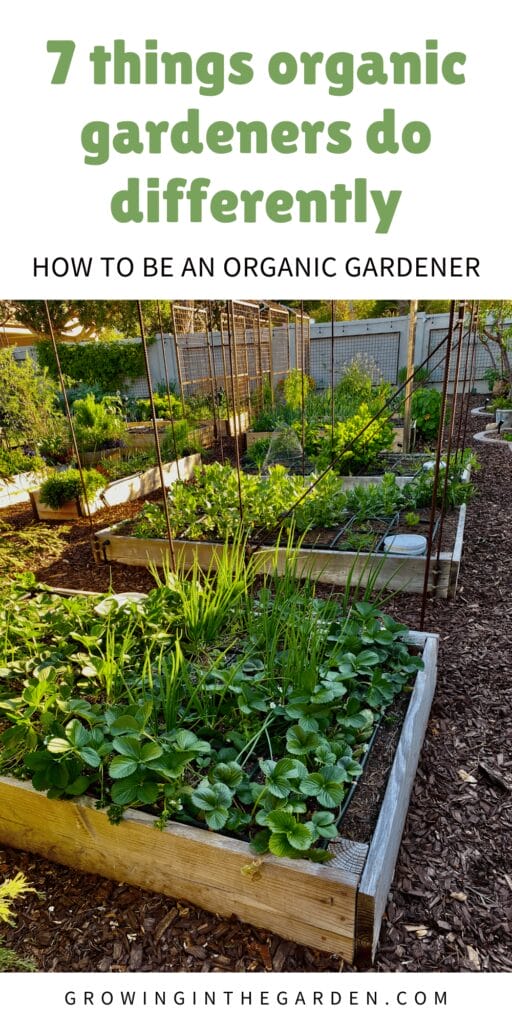
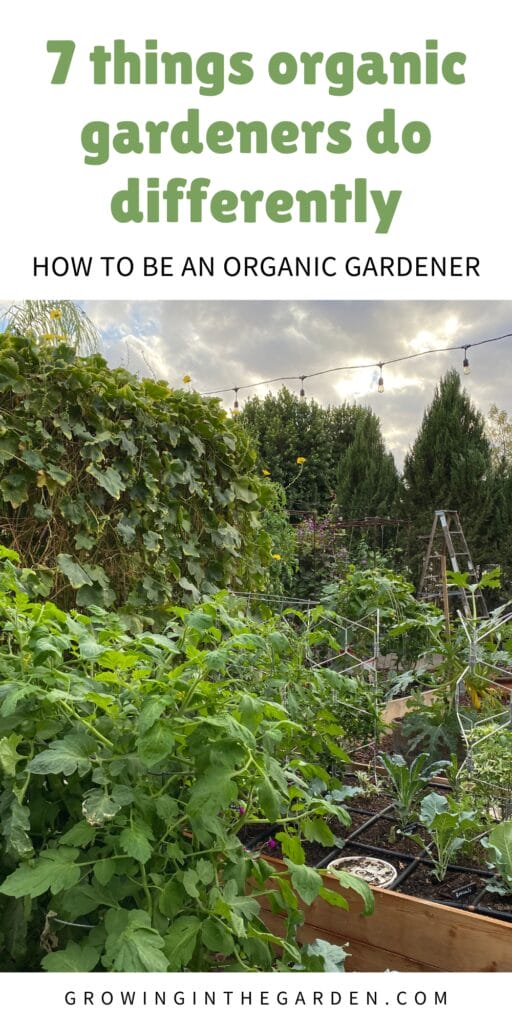





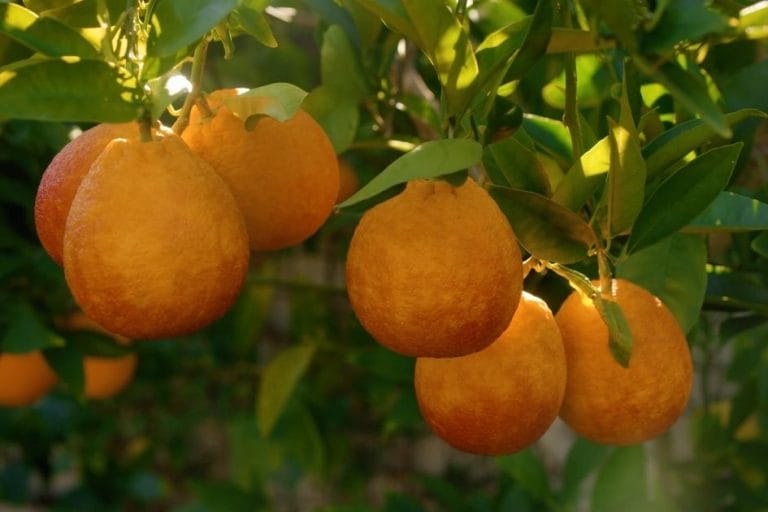
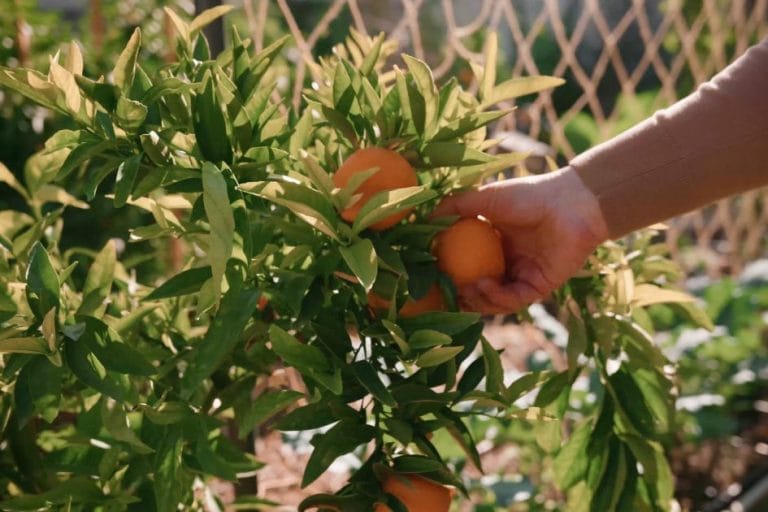

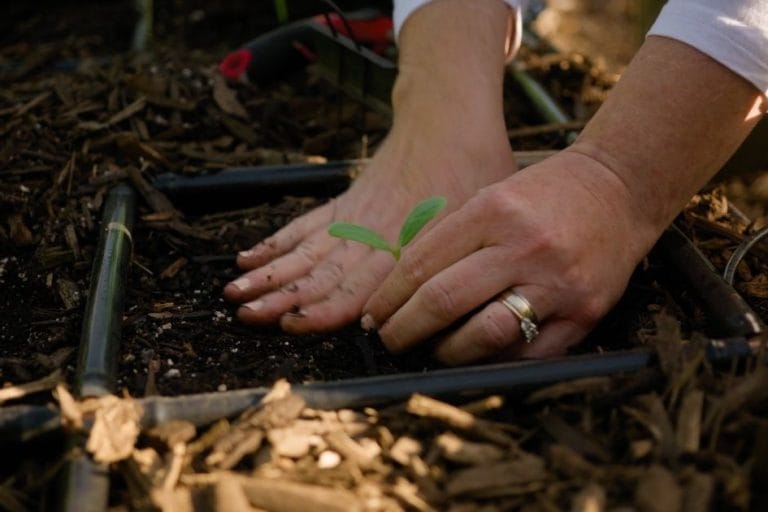
I see you have a watering grid, did you build this yourself, or purchase? If purchased can you guide me on where to purchase? I”m starting square foot gardening and no one seems to mention these watering grids?
I use the watering grids from Garden in Minutes: https://gim.ositracker.com/140976/10616 They are wonderful for square foot gardening. If you use code Angela10 it gives you a $10 discount off $100.
Here is a blog post with more information about them: https://growinginthegarden.com/best-way-to-water-raised-bed-gardens/
I got some neem oil to make a pest spray for extreme cases, but I actually have no idea what “neem” is. Is it a chemical pesticide?
Neem is a natural herb that comes from the neem tree. It can be an effective form of organic pest control when used properly.
Thank you!
What about water? Do you add a filter? Whether I buy the grid or just add a drop system. Just wondering how to keep the water pure? Or does it not matter what they drink to keep it organic?
I don’t have a filter on my watering system.